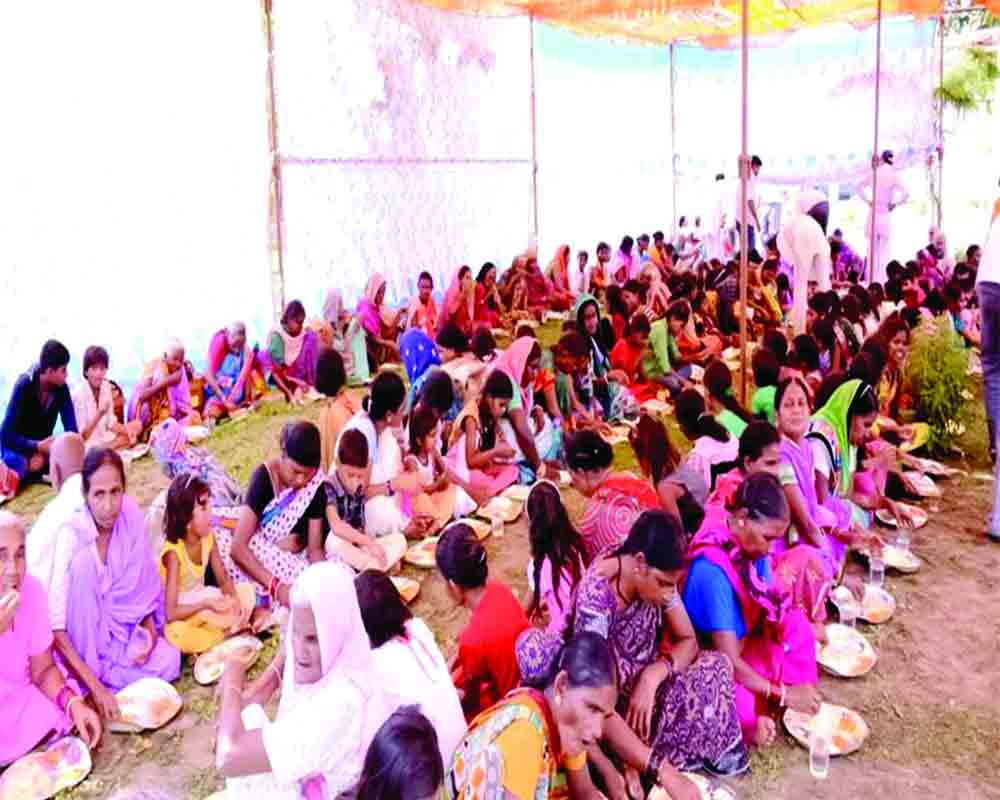A simple act of giving is much more than just an act of compassion
India, a land known for its rich tapestry of traditions and cultures, is also renowned for its deep-rooted spiritual heritage. Among the various customs and rituals that have been practiced for centuries, the tradition of "'Dana'" holds a special place. 'Dana', which translates to "giving" or "charity," is a significant practice in India that transcends the boundaries of religion, caste, and creed. It is deeply embedded in the spiritual fabric of the nation, fostering compassion, selflessness, and unity among its people.
'Dana', as a tradition, encompasses various forms of charitable acts, including donating food, money, clothes, and other essentials to those in need. The core philosophy of 'Dana' is to give without expecting anything in return. This selfless act of giving is believed to purify the soul, strengthen the sense of community, and create a more compassionate and equitable society.
Across Religions
One of the remarkable aspects of 'Dana' in India is its universality. It transcends religious boundaries and is practiced across different faiths.
1.Hinduism: In Hinduism, the concept of 'Dana' is deeply rooted in the belief in karma and dharma. The act of giving is seen as a duty and a means of purifying one's soul. During festivals and rituals, Hindus often perform 'Dana', offering food, clothing, or money to the less fortunate.
2.Buddhism: 'Dana' is one of the fundamental virtues in Buddhism. Buddhists believe in the importance of generosity and selflessness. Monks and laypeople alike engage in acts of 'Dana' to accumulate merit and practice the teachings of the Buddha.
3.Sikhism: The Sikh tradition promotes selfless service and giving. The concept of "Langar" in Sikhism, where free meals are provided to all visitors at the community kitchen in Sikh gurudwaras, is a significant example of 'Dana'. It symbolises equality, humility, and community service.
4.Jainism: 'Dana' is an integral part of Jainism, which emphasises non-violence and compassion. Jains believe in giving to the less fortunate, not just material possessions but also sharing knowledge, wisdom, and spiritual guidance.
5.Islam and Christianity: Even in religions like Islam and Christianity, charity is a cornerstone of the faith. Muslims practice "Zakat," a form of almsgiving, while Christians are encouraged to tithe, which involves giving a portion of their income to those in need.
Spiritual Significance
The act of giving in the tradition of 'Dana' holds profound spiritual significance in India:
1.Purification of the Soul: 'Dana' is considered a means to purify one's soul. It is believed that by giving, one sheds their attachment to material possessions and cultivates a sense of detachment, ultimately leading to spiritual growth.
2.Karma and Dharma: The concept of karma (the law of cause and effect) and dharma (duty) plays a pivotal role in the act of giving. By fulfilling their dharma and performing acts of 'Dana', individuals accumulate positive karma, which is believed to influence their future lives.
3.Unity and Compassion: 'Dana' fosters a sense of unity and compassion within society. It brings people from different backgrounds together, highlighting the common human bond and promoting a sense of responsibility towards one another. 4.Happiness and Inner Fulfillment: Many find a deep sense of happiness and inner fulfillment in the act of giving. The joy of helping others and making a positive impact on their lives is considered a source of spiritual contentment.
'Dana', the tradition of giving in India, is a powerful testament to the spiritual and ethical values that have shaped the nation for millennia. It transcends religious, social, and economic boundaries, promoting compassion, selflessness, and unity among people.
(The writer is spiritual guide; views are personal)


























